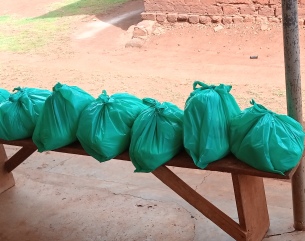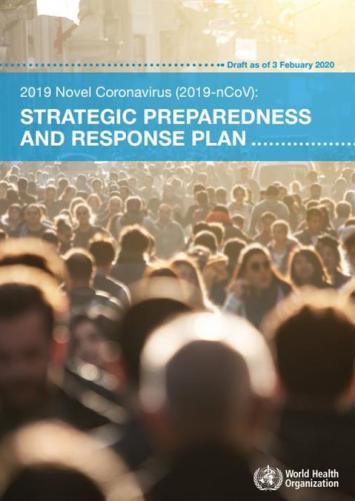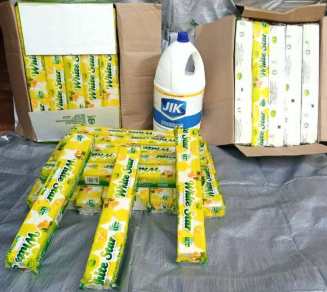Rural Uganda Church COVID-19 Community Needs Assessment Snippets – March 22nd to April 2nd, 2020
By Dr. Pamela Mukaire
“There are great COVID-19 resources online.”
“All our products and services have now moved online.”
“My child is able to continue school. All her homework is available online.”
These statements speak to the truth of the digital power and divide. For those of us who have the privilege of access to technology and the digital skillset, it’s hard to imagine the millions of people missing in our digital world. For all our sakes, and especially theirs, they should not be missing!
Like many nonprofits, we serve lots of people have never used a smartphone, touched a computer, sent an email, used Google to find information or buy anything. We cannot overstate the depth and breadth of the digital divide. Our low or no tech populations cannot access COVID-19 information via the internet, register for our online training course, access or use a mobile app, or our Facebook page, or your homeschool webpage resources.
On March 1st, we conducted our first no-tech and low-tech project sites survey. Little did we know that in just 10 days, COVID-19 would force us to think radically about our nonprofit technology use, and the truth that it’s no longer optional for even the most remote rural serving health, education, transport, economic (name it) program. The unthinkable alternative would be to suspend all our community services until May, June, July or whenever COVID-19 becomes motionless.
While technology has been a great tool and saver for us as international nonprofit health and development practitioners, it has also created this incredible and significant distance between us and our communities of service. With only 6 smartphones amongst our 35 Core Volunteer team, we simply can’t reach the communities and clients we greatly love and care about, let alone the dedicated Community Health Workers and Skilled Health Providers we serve alongside. Hundreds of our local partner patients and participants and local leaders fall into this category as well.
By Providence, we had a laptop donation campaign this February and we successfully obtained 7 of the 12 needed laptops for our major project site workers (thanks to our friends and supporters). We will at least maintain some continuity.
But what do we do for those who are missing? As a community based nonprofit RIBHO has monthly access to about 71 local churches, 200 youth, and over 600 households, yet this week alone, as we scrolled through our contact list to communicate COVID-19 resource availability to our church partners, only a handful of contacts could be reached via WhatsApp – an internet based communication app.
We do maintain vibrant community programs and events throughout the year. But all of this is made possible by a well-oiled word of mouth and in person systems of community mobilization that has remained more effect than digital announcements – until now.
As the everyday digital life sets a more central divide than the glaring COVID-19 life-changing events shaping our lives – we simply must keep nonprofit programs accessible to their no-tech and low-tech rural and urban population groups.
In trying to understand our low-tech challenges better, we have been on the phone with are rural watch volunteers daily (between March 22nd and April 2nd, 2020). This honest inside look at our loved ones on the other side of the digital divide, provides insights into the inevitable digital battles of our time, only hastened by COVID-19.
Below are some snippets that we will elaborate on in real tech catch up time.
Social distancing and “doing fellowship”: Social distancing is harder for close knit societies where close physical space sharing is an essential part of the culture and a way to express commitment to each other. “This no touch, no shake, no hug, no closeness 6 feet rules is not working well for us. We have always shared clothes, food, beds, drunk from the same cup and dipped in the same plate, even when we are rich. We shake each other hands first then say, “we are not supposed to do this.”
Cell Churches – Small Group Church and related looming COVID spread challenges: As pastors and congregations seek new ways to serve and fellowship during these difficult days, some without digital technologies for live stream church services have resorted to small group church. “Cell group church is comprised of 4-5 people meeting weekly to pray together on Sunday for now. The challenge is that each of these people is coming in from “outside” and returning to their home. We do not know where they have been all week and if there is a chance they have been exposed to COVID. The church must go on but how? We need each other and we need our God, but very few of us have TV’s and smartphones. The radio stations help but they also give too much scaring information on COVID constantly. We will have to learn how to do only family church very soon.”
Emerging and evolving emergency preparedness for the rural church: As the local government issues additional guidelines on social distancing, for example discouraging gatherings of more than 10 people to prohibiting meetings (and using police force to enforce these laws), many churches have to change fellowship plans constantly. Something good has come of this scrambling in a quest to continue ministering and making disciples in difficult circumstances. Plans to provide low-tech pastoral care and establishing distribution points for print materials, hygiene practices and other basics like soap and food have materialized.
Daily hourly wage earners have no option for working remotely: Farmers, road side vendors, shop keepers, hair dressers, tailors, and food vendors make up the majority of our community population work situations, many of whom are in the service industry, self-employed and do not have the option to work remotely. “We have brought food home on a daily basis. Eat as you earn. Even during HIV/AIDS crisis we could still work. But to totally stop work for an unknown length of time, without any money coming in is the worst.”
Faith interpretations of COVID-19 that could create mental health challenges: “There is such a heaviness in my mind that this COVID-19 is a punishment from God. Even the pastors say so. We are pleading with God to end this soon. It is hard to breath fearing the future. Twelve days of no work and we already have not had sugar in a week. What will happen to us if this continues for 1, 2, 3, months? We are pleading with God to lift the judgment.”
Large family member homesteads and the COVID social distancing rules and guidelines: “Three of our bread winners have been working in the food market. We come home afraid of killing our family members … in case I was exposed to COVID-19. My family alone has 14 people sharing three rooms. The school sent them all back home. Which of my children or relatives am I supposed to send away and to who?. Some had come for a funeral and the travel curfew caught them here. Now how do we get them back to their homes without transport?”
Farming, enforced mobility limitations, and implications for household food security: “Some of us do not live where we grow our food. It’s planting season and without local transportation it’s becoming hard to monitor our gardens. We had not yet finished planting corn and beans but we also have grown matooke (plantain bananas) that we need to eat right now but can’t access. I know people around the garden will probably steal my ripe food while we have little to eat here at the house. For now some boda bodas (motor bicycle transporters) are helping us but for how long?”
COVID-19 will continue to change how individuals, businesses and organizations operate. We recognize that individuals and organizations alike will need a long extra helping hand.
Our organization serves those individuals that need to be reached more than ever before. We need your help and creativity to reach them and continue putting our services, materials and products in their minds, hands, homes, and communities.
We have work to do, to drastically change our service delivery to address these technology gaps. Hope you can join us!
About the author: Pamela Mukaire is a Public Health and Development Practitioner. She raises funds for rural and urban low resource community based organizations, cultivates strategic partnerships and supports local leaders to implement health programs to enrich their services to the community.







